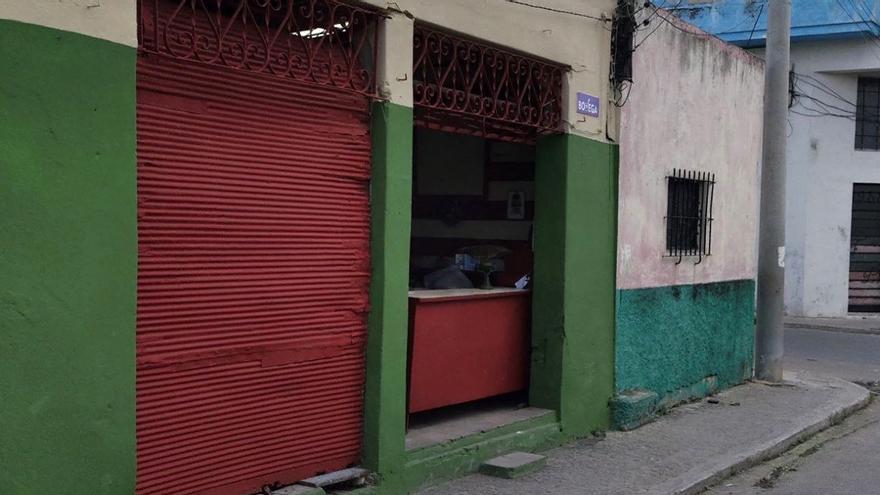
![]() 14ymedio, Juan Diego Rodríguez, Havana, November 1, 2023 — November has begun, and in front of the bodega [ration store] on Arango Street, in the neighborhood of Luyanó in Havana, you don’t see the usual crowding at the beginning of the month. There are no shouts, no pushes, no line of improvised stools for the customers, who wait for hours until it is their turn to buy. So far, only the rationed three pounds of sugar per person have arrived, but none of the most anticipated product: the rice.
14ymedio, Juan Diego Rodríguez, Havana, November 1, 2023 — November has begun, and in front of the bodega [ration store] on Arango Street, in the neighborhood of Luyanó in Havana, you don’t see the usual crowding at the beginning of the month. There are no shouts, no pushes, no line of improvised stools for the customers, who wait for hours until it is their turn to buy. So far, only the rationed three pounds of sugar per person have arrived, but none of the most anticipated product: the rice.
With long faces and looking bored, the bodega employees don’t seem to enjoy this quiet panorama. Clueless neighbors approach, but most already know that the protagonist of Cuban meals has not yet arrived. “I was told by my mother who lives in Key West [Central Havana],” Lisandro, a father of two children, tells 14ymedio. “We are not the only ones affected.”
This newspaper found that in large areas of the municipalities of Plaza de la Revolución, Diez de Octubre, Cerro and Centro Habana, the bodegas have also not been supplied with the quota of rice that consumers receive monthly. The absence of rice is not something minor, because it forces families to buy food on the free market, in informal networks or in the newly opened premises managed by the MSMEs [micro, small and medium-sized businesses]. In all of them, one pound of the worst-quality rice exceeds 170 pesos, and it rises to 250 in its best version.
The basic basket in Cuba has been reduced over the years. Of more than 20 subsidized items that were once distributed through the bodegas, there are only a few left, which can be counted on the fingers of one hand. But rice had been the most constant in its arrival, due to the fact that its deficit dramatically decreased access to food in the Island’s homes. This November, the tall thin gentleman will be late to appear on the dishes of those who can only eat from the subsidized basic basket.
Behind closed doors, on Arango de Luyanó Street itself, some casseroles still have the luxury of containing some grains. Others wait for the shout of “the rice has arrived!” Trying to get there early, people throw themselves down the stairs and the bodega is again filled with people, stools and shopping bags.
Translated by Regina Anavy
____________
COLLABORATE WITH OUR WORK: The 14ymedio team is committed to practicing serious journalism that reflects Cuba’s reality in all its depth. Thank you for joining us on this long journey. We invite you to continue supporting us by becoming a member of 14ymedio now. Together we can continue transforming journalism in Cuba.
